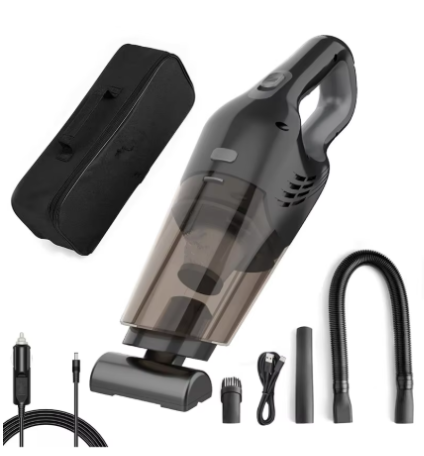বৈদ্যুতিক পাম্পিং সমাধানের বিশ্ব সম্পর্কে বোঝা
ইলেকট্রিক পাম্প শিল্প থেকে শুরু করে বাসগৃহের অ্যাপ্লিকেশন পর্যন্ত তরল স্থানান্তরে বৈদ্যুতিক পাম্পগুলি এক বিপ্লব এনেছে। এই বহুমুখী যন্ত্রগুলি বৈদ্যুতিক শক্তিকে যান্ত্রিক শক্তিতে রূপান্তরিত করে, যা তরল এবং গ্যাসের দক্ষ স্থানান্তর সম্ভব করে তোলে। আপনি যদি বেসমেন্টে জলাবদ্ধতা নিয়ে সংগ্রাম করছেন এমন একজন বাড়িওয়ালা হন, অথবা সেচ ব্যবস্থা পরিচালনা করছেন এমন একজন কৃষক হন, অথবা জটিল অপারেশন তদারকি করছেন এমন একজন শিল্প সুবিধা ব্যবস্থাপক হন—সঠিক বৈদ্যুতিক পাম্প নির্বাচন আপনার অপারেশনের সাফল্যকে উল্লেখযোগ্যভাবে প্রভাবিত করতে পারে।
বাজারে বৈদ্যুতিক পাম্পের সমাধানের একটি বিস্তৃত পরিসর রয়েছে, যার প্রতিটি নির্দিষ্ট চ্যালেঞ্জ এবং প্রয়োজনগুলি মোকাবেলা করার জন্য ডিজাইন করা হয়েছে। এই পার্থক্যগুলি বোঝা আপনার পাম্পিং সিস্টেমের অনুকূল কর্মক্ষমতা এবং দীর্ঘায়ু নিশ্চিত করতে সাহায্য করে। চলুন বৈদ্যুতিক পাম্পের বৈচিত্র্যময় জগতটি অন্বেষণ করি এবং খুঁজে বার কীভাবে বিভিন্ন ধরনের পাম্প বিভিন্ন অ্যাপ্লিকেশনকে কার্যকরভাবে পরিবেশন করতে পারে।
কেন্দ্রবিমুখী বৈদ্যুতিক পাম্প: শিল্পের কাজের ঘোড়া
একক-পর্যায়ের কেন্দ্রবিমুখী পাম্প
একক-স্তরের কেন্দ্রবিমুখী বৈদ্যুতিক পাম্পগুলি আবাসিক এবং হালকা বাণিজ্যিক প্রয়োগের ক্ষেত্রে সবচেয়ে সাধারণ ধরন। এই পাম্পগুলিতে একটি ইমপেলার থাকে যা তরলের চলাচলের জন্য প্রয়োজনীয় চাপ তৈরি করতে উচ্চ গতিতে ঘোরে। তাদের সরল নকশাটি তাদের জল সরবরাহ ব্যবস্থা, পুল সঞ্চালন এবং মধ্যম চাপ যথেষ্ট এমন মৌলিক শিল্প প্রক্রিয়াগুলির জন্য আদর্শ করে তোলে।
একক-স্তরের পাম্পগুলির সরলতা কম রক্ষণাবেক্ষণের প্রয়োজন এবং খরচ-কার্যকর পরিচালনার দিকে নিয়ে যায়। এগুলি ধ্রুব প্রবাহের হার প্রয়োজন এমন অ্যাপ্লিকেশনগুলিতে উত্কৃষ্ট, এবং পরিষ্কার তরলগুলি কার্যকরভাবে পরিচালনা করতে পারে। তবে, উচ্চ চাপের প্রয়োজন বা ঘন তরল নিয়ে কাজ করার সময় তাদের কার্যকারিতা সীমিত হতে পারে।
মাল্টি-স্টেজ কেন্দ্রবিমুখী সমাধান
যখন অ্যাপ্লিকেশনগুলি উচ্চতর চাপ ক্ষমতার দাবি করে, তখন বহু-পর্যায়ের কেন্দ্রবিমুখী বৈদ্যুতিক পাম্পগুলি পছন্দসই পছন্দ হিসাবে কাজ করে। এই জটিল ইউনিটগুলিতে ধারাবাহিকভাবে সাজানো একাধিক ইমপেলার থাকে, যার প্রতিটি মোট চাপ আউটপুটে অবদান রাখে। এই ডিজাইনটি তাদের বিশেষভাবে উচ্চতর ভবন, পৌর জল বিতরণ এবং উল্লেখযোগ্য চাপ হেড প্রয়োজন এমন শিল্প প্রক্রিয়ার জন্য উপযুক্ত করে তোলে।
বহু-পর্যায়ের পাম্পগুলি উচ্চ চাপে অসাধারণ দক্ষতা প্রদান করে যখন নির্ভরযোগ্য কর্মক্ষমতা বজায় রাখে। চাপ বজায় রেখে প্রবাহের হার পরিবর্তন করার তাদের ক্ষমতা জটিল সিস্টেমগুলিতে তাদের অপরিহার্য করে তোলে যেখানে প্রায়শই চাহিদা পরিচালনার চক্রের মধ্যে পরিবর্তিত হয়।

পজিটিভ ডিসপ্লেসমেন্ট ইলেকট্রিক পাম্প
রোটারি ভেন প্রযুক্তি
ঘূর্ণায়মান বেন বৈদ্যুতিক পাম্পগুলি সুনির্দিষ্ট তরল ডেলিভারি এবং ঘন উপকরণ পরিচালনার জন্য প্রয়োজনীয় অ্যাপ্লিকেশনগুলিতে শ্রেষ্ঠ। এই পাম্পগুলি একটি রোটরে আটকানো বেনের মধ্যে তরল আটকে রেখে কাজ করে, চাপের পরিবর্তন সত্ত্বেও ধ্রুবক সরবরাহ নিশ্চিত করে। হাইড্রোলিক সিস্টেম, তেল স্থানান্তর এবং রাসায়নিক প্রক্রিয়াকরণে এদের ডিজাইন বিশেষভাবে কার্যকর করে তোলে।
যেসব পরিস্থিতিতে প্রাইম বজায় রাখা গুরুত্বপূর্ণ, সেখানে ঘূর্ণায়মান বেন পাম্পের স্ব-প্রাইমিং ক্ষমতা একটি সুবিধা প্রদান করে। কম ও বেশি ঘনত্বের তরল ন্যূনতম পালসেশন নিয়ে পরিচালনা করার ক্ষমতার কারণে বিভিন্ন শিল্পে এদের বহুমুখী পছন্দ হিসাবে বিবেচনা করা হয়।
অগ্রগামী ক্যাভিটি ডিজাইন
চ্যালেঞ্জিং উপকরণ নিয়ে কাজ করার সময় অগ্রগামী ক্যাভিটি বৈদ্যুতিক পাম্পগুলি অনন্য সুবিধা প্রদান করে। এদের হেলিকাল রোটর ডিজাইন একটি পরপর সিরিজে সীলযুক্ত ক্যাভিটি তৈরি করে যা তরলকে মসৃণভাবে এবং অবিরতভাবে সরায়। পাল্প, অত্যধিক ঘন উপকরণ এবং কঠিন কণা ধারণকারী তরল পরিচালনার ক্ষেত্রে এই প্রযুক্তি অমূল্য।
এই পাম্পগুলি বর্জ্যজল চিকিত্সা, খাদ্য প্রক্রিয়াকরণ এবং রাসায়নিক উৎপাদনের ক্ষেত্রে অসাধারণ কার্যকারিতা প্রদর্শন করে। তরলের বৈশিষ্ট্য যাই হোক না কেন, এদের নরম পাম্পিং ক্রিয়া পণ্যের ক্ষয় রোধ করে এবং ধ্রুব প্রবাহের হার বজায় রাখে।
ডুবো বৈদ্যুতিক পাম্প সমাধান
গভীর কূপ অ্যাপ্লিকেশন
গভীর কূপের অ্যাপ্লিকেশনের জন্য ডিজাইন করা ডুবো বৈদ্যুতিক পাম্পগুলি জল সরবরাহ ব্যবস্থায় একটি গুরুত্বপূর্ণ শ্রেণী গঠন করে। এই বিশেষ ইউনিটগুলি সম্পূর্ণভাবে ডুবে থাকা অবস্থায় কাজ করে, প্রাইমিং-এর সমস্যা দূর করে এবং উল্লেখযোগ্য গভীরতায় নির্ভরযোগ্য পরিচালনা নিশ্চিত করে। এদের সীলযুক্ত গঠন মোটর এবং বৈদ্যুতিক উপাদানগুলিকে জলের সংস্পর্শ থেকে রক্ষা করে এবং দক্ষ পাম্পিং ক্রিয়া প্রদান করে।
গভীর কূপের ডুবন্ত পাম্পগুলিতে প্রায়শই উন্নত উপকরণ এবং নকশা অন্তর্ভুক্ত থাকে যা কঠোর ভূগর্ভস্থ অবস্থা সহ্য করতে পারে। অবিরতভাবে কাজ করার ক্ষমতা এবং সর্বোত্তম দক্ষতা বজায় রাখার কারণে এগুলি শহরতলীর জল সরবরাহ, কৃষি সেচ এবং খনি অপারেশনের জন্য অপরিহার্য।
নিষ্কাশন এবং বর্জ্য জল ব্যবস্থাপনা
নিষ্কাশন এবং বর্জ্য জলের জন্য ডুবন্ত বৈদ্যুতিক পাম্পগুলি ধ্বংসাবশেষ-যুক্ত তরল পদার্থ পরিচালনা করার জন্য দৃঢ় গঠন বৈশিষ্ট্যযুক্ত। এই ইউনিটগুলি সাধারণত কঠিন উপকরণ কার্যকরভাবে প্রক্রিয়া করার জন্য কাটা বা গ্রাইন্ডিং ব্যবস্থা অন্তর্ভুক্ত করে। চ্যালেঞ্জিং অবস্থার মধ্যে অবিরত প্রবাহের হার বজায় রাখার পাশাপাশি আটকে যাওয়া রোধ করা এদের নকশার প্রাধান্য হয়ে থাকে।
এই পাম্পগুলির বহুমুখিতা আবাসিক সাম্প অ্যাপ্লিকেশন থেকে শুরু করে শিল্প বর্জ্য জল প্রক্রিয়াকরণ পর্যন্ত প্রসারিত। দূষিত জল পরিচালনা করার সময় সম্পূর্ণরূপে ডুবে থাকা অবস্থায় কাজ করার ক্ষমতার কারণে আধুনিক বর্জ্য ব্যবস্থাপনা ব্যবস্থায় এগুলি অপরিহার্য।
শক্তি দক্ষতা এবং স্মার্ট প্রযুক্তি যোগাযোগ
ভেরিয়েবল ফ্রিকোয়েন্সি ড্রাইভ
আধুনিক বৈদ্যুতিক পাম্প সিস্টেমগুলিতে শক্তি খরচ অনুকূলিত করার জন্য ক্রমবর্ধমানভাবে ভেরিয়েবল ফ্রিকোয়েন্সি ড্রাইভ (VFD) অন্তর্ভুক্ত করা হয়। এই বুদ্ধিমান নিয়ন্ত্রকগুলি চাহিদার উপর ভিত্তি করে পাম্পের গতি সামঞ্জস্য করে, যার ফলে উল্লেখযোগ্য শক্তি সাশ্রয় হয় এবং সরঞ্জামের আয়ু বৃদ্ধি পায়। VFD প্রযুক্তির একীভূতকরণ ঐতিহ্যবাহী পাম্পিং সিস্টেমগুলিকে সাড়াদাতা, দক্ষ সমাধানে রূপান্তরিত করে।
স্মার্ট নিয়ন্ত্রণ ব্যবস্থা পাম্পের কর্মক্ষমতার সঠিক নিরীক্ষণ এবং সামঞ্জস্য করতে সক্ষম করে, যা পরিবর্তনশীল অবস্থার অধীনে অনুকূল পরিচালনা নিশ্চিত করে। দিনের বিভিন্ন সময়ে চাহিদা পরিবর্তিত হয় বা মৌসুমি পরিবর্তনগুলি সিস্টেমের প্রয়োজনীয়তা প্রভাবিত করে এমন অ্যাপ্লিকেশনগুলিতে এই প্রযুক্তি বিশেষভাবে মূল্যবান।
IoT এবং ভবিষ্যদ্বাণীমূলক রক্ষণাবেক্ষণ
ইন্টারনেট অফ থিংস (IoT) প্রযুক্তির সাথে বৈদ্যুতিক পাম্প সিস্টেমের একীভূতকরণ পাম্প ব্যবস্থাপনার ভবিষ্যৎ নির্দেশ করে। সংযুক্ত সেন্সরগুলি প্রচলন প্যারামিটারগুলির বাস্তব-সময়ের মনিটরিং প্রদান করে, যা পূর্বাভাসমূলক রক্ষণাবেক্ষণ এবং আগে থেকে সমস্যা শনাক্তকরণকে সম্ভব করে। এই উন্নত পদ্ধতি অপ্রত্যাশিত ব্যর্থতা প্রতিরোধ করতে এবং রক্ষণাবেক্ষণের সময়সূচী অনুকূলিত করতে সহায়তা করে।
স্মার্ট মনিটরিং সিস্টেমগুলি কার্যকারিতা ডেটা সংগ্রহ এবং বিশ্লেষণ করে, সিস্টেমের দক্ষতা এবং সম্ভাব্য উন্নতি সম্পর্কে অন্তর্দৃষ্টি প্রদান করে। পাম্প প্রচলনের দূরবর্তী মনিটরিং এবং নিয়ন্ত্রণের ক্ষমতা রক্ষণাবেক্ষণ কৌশলগুলিকে প্রতিক্রিয়াশীল থেকে প্রাক্ক্রিয়াশীল পদ্ধতিতে রূপান্তরিত করে।
প্রায়শই জিজ্ঞাসিত প্রশ্নাবলী
আমার প্রয়োগের জন্য কীভাবে সঠিক আকারের বৈদ্যুতিক পাম্প নির্ধারণ করব?
প্রয়োজনীয় প্রবাহ হার, মোট চাপ শির, তরলের বৈশিষ্ট্য এবং সিস্টেমের চাহিদা সহ বেশ কয়েকটি ফ্যাক্টর বিবেচনা করে উপযুক্ত বৈদ্যুতিক পাম্পের আকার নির্বাচন করা প্রয়োজন। একজন পাম্প বিশেষজ্ঞের সাথে পরামর্শ করা এবং বিস্তারিত সিস্টেমের প্রয়োজনীয়তা পর্যালোচনা করার মাধ্যমে আপনার নির্দিষ্ট চাহিদার জন্য অনুকূল নির্বাচন নিশ্চিত করা যায়।
আমার ইলেকট্রিক পাম্পের জন্য আমার কী ধরনের রক্ষণাবেক্ষণ সূচি অনুসরণ করা উচিত?
পাম্পের ধরন, প্রয়োগ এবং পরিচালনার শর্তের উপর নির্ভর করে নিয়মিত রক্ষণাবেক্ষণের ব্যবধান নির্ধারিত হয়। সাধারণত মাসিক দৃশ্যমান পরিদর্শন, ত্রৈমাসিক ভিত্তিতে সীল এবং বিয়ারিং পরীক্ষা এবং বার্ষিক ব্যাপক রক্ষণাবেক্ষণ করা উচিত। নির্দিষ্ট রক্ষণাবেক্ষণের প্রয়োজনীয়তা সম্পর্কে সর্বদা প্রস্তুতকারকের নির্দেশাবলী অনুসরণ করুন।
ইলেকট্রিক পাম্প কি গরম এবং ঠাণ্ডা তরল উভয়কেই পরিচালনা করতে পারে?
অধিকাংশ ইলেকট্রিক পাম্প বিভিন্ন তরল তাপমাত্রা পরিচালনা করতে পারে, কিন্তু নকশা এবং উপকরণের উপর নির্ভর করে পরিচালনার পরিসর ভিন্ন হয়। নির্বাচনের আগে সর্বদা তাপমাত্রার নির্দিষ্টকরণ যাচাই করুন এবং চরম তাপমাত্রার প্রয়োগের জন্য বিশেষ পাম্প বিবেচনা করুন। তাপমাত্রার পরিসর জুড়ে নির্ভরযোগ্য পরিচালনার জন্য উপযুক্ত নিরোধক এবং উপকরণ নির্বাচন নিশ্চিত করুন।

